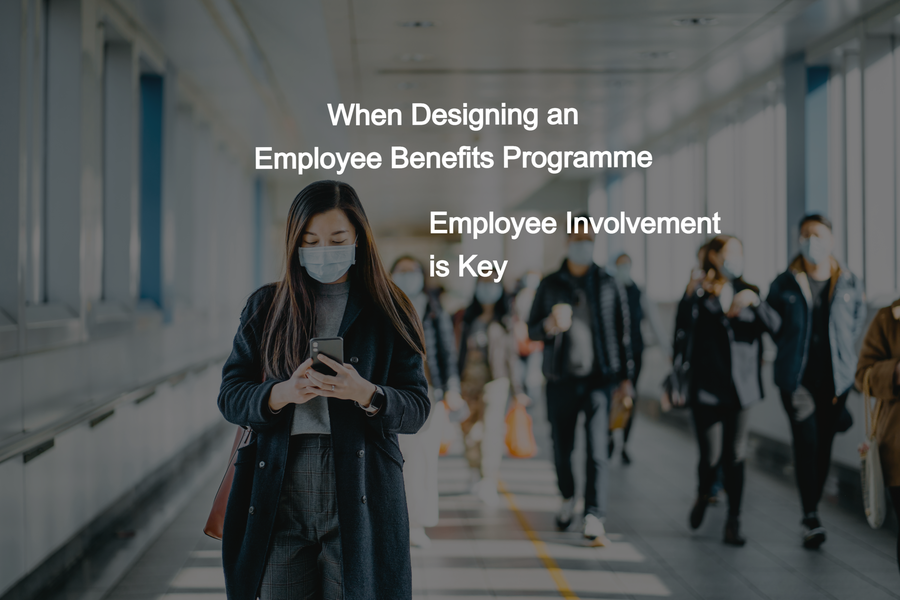When Designing an Employee Benefits Programme – Employee Involvement is Key
You may be looking at the following areas to help improve your company’s productivity and profitability:
- Attracting and retaining high calibre staff
- Reducing absenteeism
- Maintaining and improving your employees’ physical and mental health
- Meeting statutory Health and Wellbeing obligations
- Improving staff morale
When you have a clear idea of what your senior management is looking to achieve, it is time to involve your employees. One idea is to conduct a staff survey to ascertain which employee benefits are of interest to them. Provide your employees with a list of benefits, including a brief description of each and ask them to confirm their favourites in descending order.
The results of the survey are likely to be determined by the demographics of your company. Younger employees are likely to socialise more and therefore lean towards a Staff Discount Scheme (also known as Employee Perks) which allows employees to enjoy discounts on coffee, restaurant meals, food and fashion shopping, days out, gym membership etc.
Employees who play sport might like the idea of a Health Cash Plan which will provide them with cash back towards physiotherapy sessions, complementary therapies, specialist consultations and diagnostic tests. Opticians’ fees, prescribed glasses and contacts and dental check-ups are also included in a cash plan.
Staff members with partners and young families will have different priorities and benefits such as Life Insurance, Critical Illness Cover and Income Protection Insurance will to be more attractive to them.
As employees become older, health becomes a higher priority and benefits such as Health Assessments and Private Medical Insurance will appeal to more mature members of staff.
Companies trading internationally will require International Private Medical Insurance (IPMI) for their overseas staff. The benefit is also attractive to employees of firms, particularly those based in the City of London, who demand the additional healthcare benefits that IPMI provides, including access to private maternity facilities, health checks, private GP consultations, dental, optical and chronic conditions cover.
Armed with the feedback from employees, you can employ the services of an Employee Benefits specialist, to obtain costings for each benefit and determine which ones will help you achieve your company goals within your budget. Your draft Employee Benefits Programme can then be presented to senior management, safe in the knowledge that the benefits will be appreciated by your workforce.

